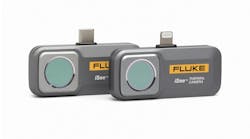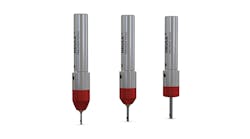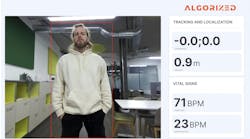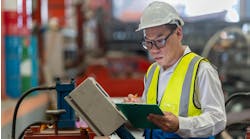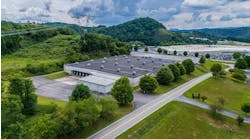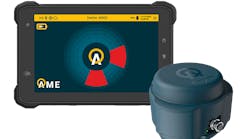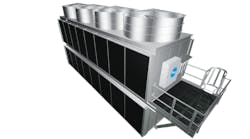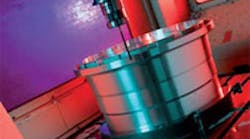Dunlop Aerospace Braking Systems, a part of Meggitt plc, designs, develops, and manufactures wheels and brakes for global commercial and military aircraft. To meet steady growth in demand for aerospace components, Dunlop created a hub-and-flange cell at its plant in Coventry, England, built around three, state-of-theart CNC machine tools capable of multiple operations and multiface/ axis processing of forgings without refixturing. The key to such a “done in one” production strategy was to specify that all the machines would mount Renishaw probing systems.
Dunlop invested over $3 million in the following machine tools capable of high versatility and automated processing efficiencies:
- Multi-tasking Mazak Integrex, a turning center with full C-axis and driven-tool milling capability;
- Large Mazak HV800 fiveaxis horizontal machining center;
- Mori-Seiki MT4000 multifunction turning/milling center, the first of its type in the U.K., with 30-in. turning diameter, 40-hp milling spindle, and 60-tool ATC.
Renishaw probes (www.renishaw.com) carried in the tool magazines locate the part on set-up, identify and correct for stress relief changes, enable in-process measurements and compensations, and automatically reset machine coordinates for changing processes, axes, part faces, without operator intervention.
“We have now used probing systems in this cell for over six years and have cut costs and times, with a step change in process control and consistency,” states Andrew Cartledge, team leader of the hub and flange cell.
That process control allows Dunlop to produce wheels and brakes that are reliable in all conditions and scenarios, while meeting aviation industry demands for ever-increasing accuracy and quality. Its wheels and braking systems are used on many of the world’s leading commercial, military and business aircraft.
Wheels are machined from aluminum forgings, usually L77 aluminum. The high cost of the components — between forging and machining operations — makes it essential that Dunlop Aerospace keep scrap levels low. Probing checks the forgings for irregularities during set-up, enabling best fit location of the part. This eliminates air cuts, enables metal cutting to start immediately, and ensures that critical surfaces are accurately located, while reducing over cutting time.
As the meta l remova l process can relieve stresses in the forged material, probing monitors for any resulting dimensional changes to enable closed-loop automatic compensations.
Touch-probing allows resetting of the machine coordinate system relative to previously machined features — which is vital to process consistency when indexing the part, changing machining axis angle, or switching processes, such as from turning to milling on a multi-tasking machine.
Integrating probing into machining helps Dunlop to design for manufacture in its new product introduction process. “We’ve seen improvement in machining cycle times every time we’ve introduced a component to the cell,” according to Cartledge.

